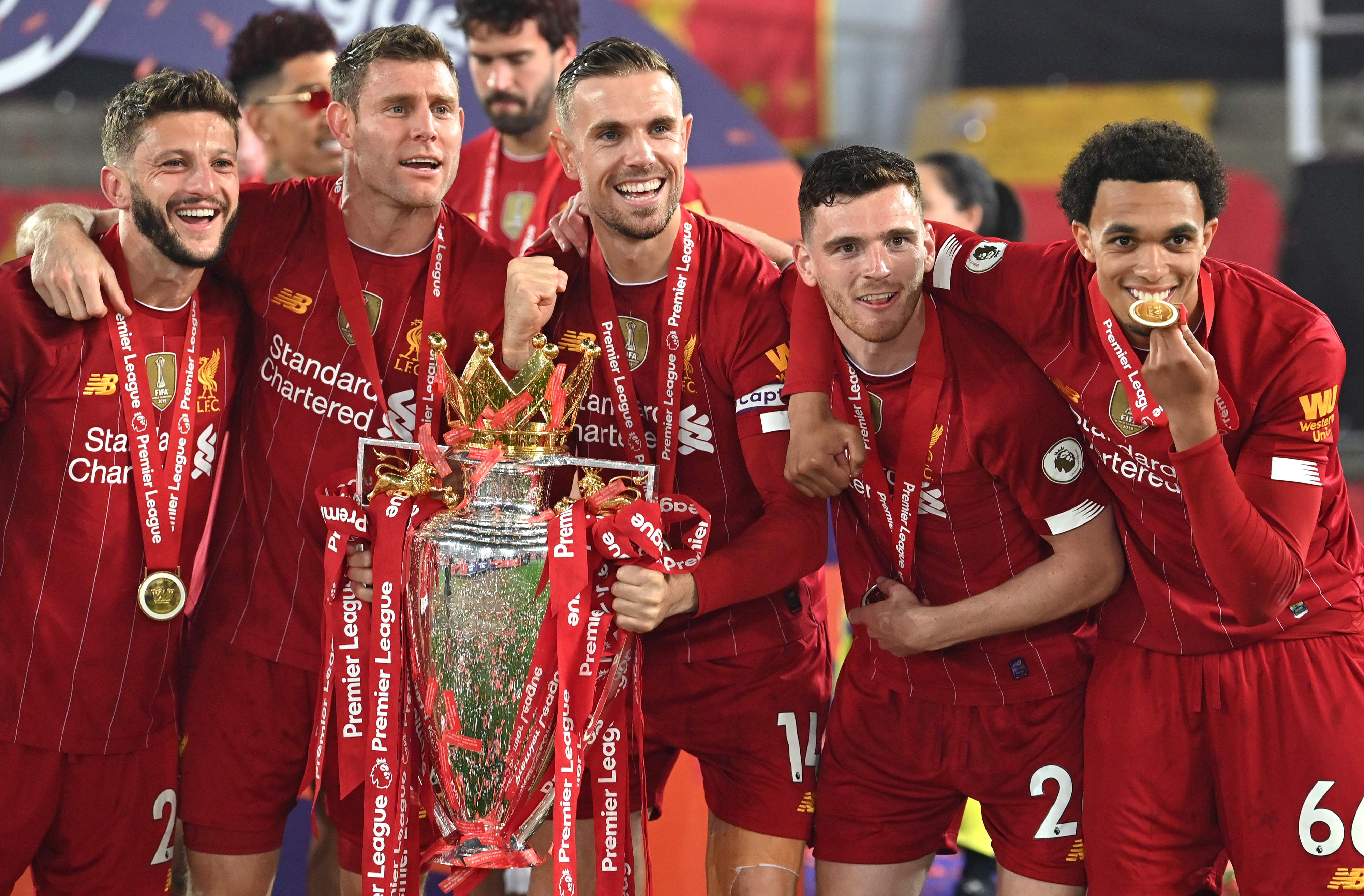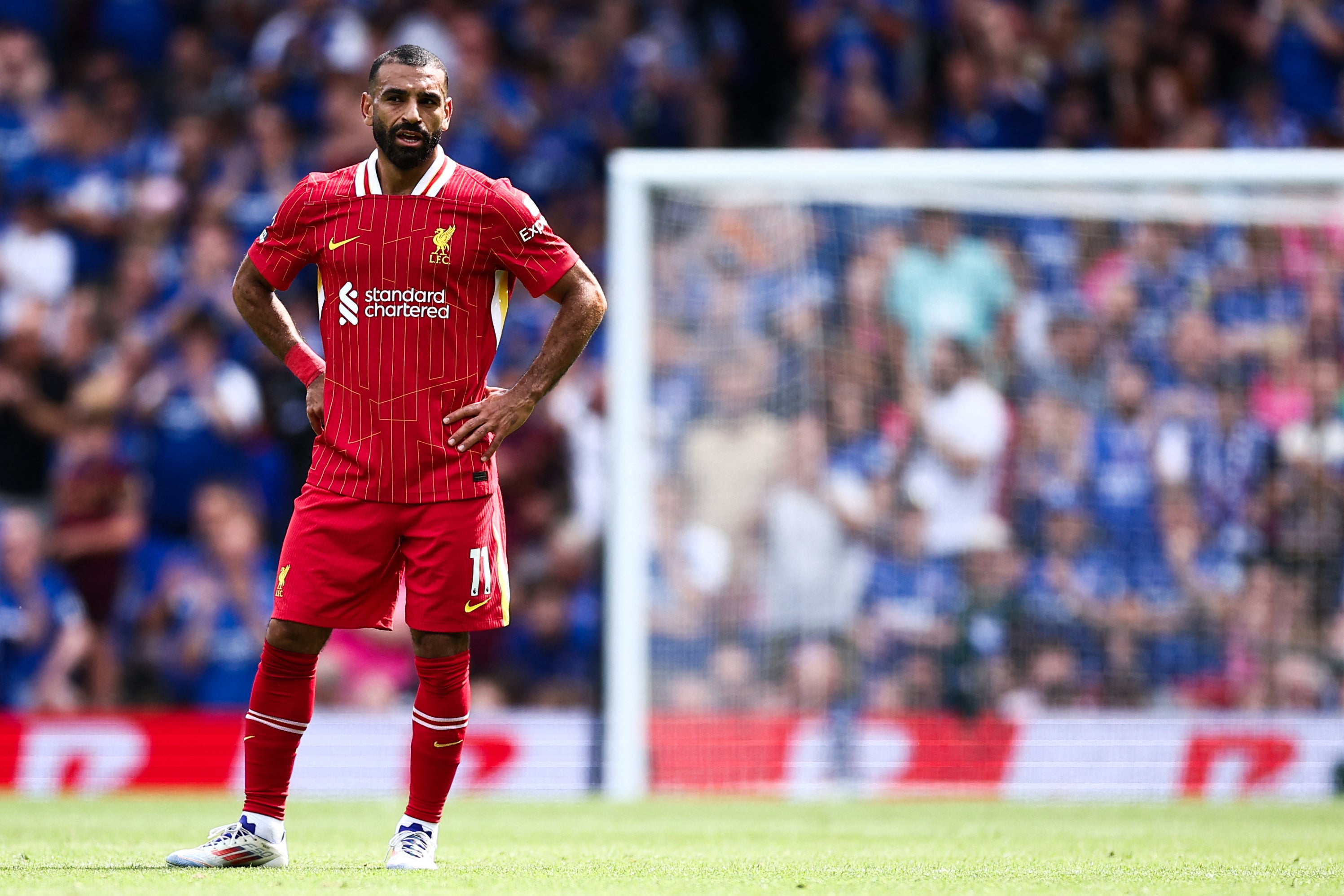Why Michael Edwards is the man reshaping Liverpool’s destiny
Having returned to Anfield since his successful spell working with Jurgen Klopp, Edwards is now steering the Premier League club in a new direction

Your support helps us to tell the story
From reproductive rights to climate change to Big Tech, The Independent is on the ground when the story is developing. Whether it's investigating the financials of Elon Musk's pro-Trump PAC or producing our latest documentary, 'The A Word', which shines a light on the American women fighting for reproductive rights, we know how important it is to parse out the facts from the messaging.
At such a critical moment in US history, we need reporters on the ground. Your donation allows us to keep sending journalists to speak to both sides of the story.
The Independent is trusted by Americans across the entire political spectrum. And unlike many other quality news outlets, we choose not to lock Americans out of our reporting and analysis with paywalls. We believe quality journalism should be available to everyone, paid for by those who can afford it.
Your support makes all the difference.One architect of Liverpool’s rise had a strange anonymity. Michael Edwards was the transfer guru who helped build Premier League- and Champions League-winning sides on budget. Yet when he returned to Anfield this year as Fenway Sports Group’s CEO of football, Liverpool’s search for a photograph of Edwards took some time. The one they eventually found, from when Jurgen Klopp signed his contract extension, still came with the German’s arm around Edwards’ shoulder.
That low profile is a reason why a mystique surrounds Edwards. His first summer back – though not in his old role, with his friend Richard Hughes appointed sporting director – has brought some reminders of his initial spell, but without the arrivals many anticipated. There are some signs of future planning but there is much else to resolve.
When Edwards was sporting director, Liverpool used to have a profitable business selling young players, often to Hughes at Bournemouth. In the last couple of months, they have made £62m by allowing Fabio Carvalho and Sepp van den Berg to join Brentford and Bobby Clark to go to RB Salzburg, all with sell-on clauses and when none, arguably, would have made the bench if everyone is fit. But Edwards’ Liverpool had a tendency to swoop in for targets and act decisively: instead Martin Zubimendi, earmarked as the first signing, has decided to stay at Real Sociedad.
The £10m deal for Federico Chiesa felt opportunistic; it came at a price where Liverpool cannot lose much. Maybe it had similarities with the signing of Xherdan Shaqiri, another talent picked up on the cheap at 26. The purchase of Giorgi Mamardashvili, who has been loaned back to Valencia, may mean Liverpool replace perhaps the world’s best goalkeeper, in Alisson, with potentially the finest of the next generation.
But so far there is no flagship signing: nor, indeed, another club to add to FSG’s portfolio after they chose not to buy Bordeaux. Liverpool’s summer has been defined more by what they have not done than what they have: Mohamed Salah and Virgil van Dijk have not been offered contracts and nor, seemingly, has Trent Alexander-Arnold.
If Edwards has not waved a magic wand, nor has he assumed more of a public presence. It means he remains an enigmatic figure. Ian Graham, Liverpool’s former director of research, has worked with Edwards, first at Tottenham, then at Anfield and then for his company Ludonautics. He knows him well, but remembers his first impression. “Michael is a unique character, shall we say,” said Graham. “My first meeting with him, I just thought, ‘Who the hell is this guy?’” Edwards had been a youth-team player at Peterborough, got an informatics degree and was one of the Premier League’s first video analysts, working for Harry Redknapp. “His job at Portsmouth was to produce this stats report for Harry and his coaching staff who frankly didn’t care about it and even if they did care, Michael thought the report was rubbish,” Graham said.
The statistics were too basic for Edwards. Graham explained: “He had some exposure to data and stats but was not an expert. But he was an intelligent lay person and his view was, ‘I don’t want to show this to coaches because I know football, this is not describing the match I just watched.’” Edwards, Graham said, turned Prozone from a data company into a video company to help get his message across. “If a chance is created, the way the coaches want to understand it is by seeing the video again so he ditched the stats reports and started making video analysis.”
Edwards was “Redknapp’s video guy” and Graham was working for Damien Comolli at Tottenham when Spurs hired a veteran manager who was scarcely a byword for innovation. Their introduction did not go smoothly when Edwards surveyed Graham’s numbers. “I think his opening line was, ‘This is all bullshit, isn’t it?’” recalled Graham. Edwards’ point – that statistics showing the number of passes made or tackles won – was that they didn’t tell the whole story. It was expressed in his own way.

“He is quite a spiky character,” Graham said. “If he disagrees with you loudly and immediately, probably with a few swearwords in there as well. I come from an academic background where we have serious arguments but you put your point across and show some supporting evidence, you don’t just shout ‘this is f***ing rubbish’. But behind that spikiness is because he wants to get at the truth. Of all the people I have worked with at clubs, Michael is the only one, he has a real appetite for understanding detail, he is like a dog with a bone, saying, ‘What about this and how does this work?’ If he wants an answer, he wants it yesterday and will keep on at you until you have got the answer. His quote to me was, ‘At the end of the day, I believe in facts and more information has got to be a good thing.’”
Where Edwards flourished was by using an inquisitive approach, allying it with his footballing knowledge and working out how to use the numbers. “The way he used our analysis was a starting point and say, especially for forwards and creative players, the data was really good – we should sign this player, or otherwise – and he would follow that reasonably closely,” Graham said. It was harder to assess defenders or defensively-minded midfielders. It required Edwards’ intelligence. “He would use the data analysis as a starting point and he would have in his head, ‘I know the way they estimate the defensive contribution when the player is not on the ball; I know, for example, this team plays an incredibly high line or this team plays an incredibly low block so I am not going to adjust for that in my head and say this player is a bit better or a bit worse than what the data says.’”
And, Graham said, Edwards could beat the evolving technology to a conclusion. “The interesting thing was as the data got better and now we can see where all the players are 25 times per second, we started building into our analysis exactly the kind of adjustments that Michael was putting in intuitively because he knows football,” he added. “So he is the ideal mix of someone who grew up in football and knows football – he spent 10 years as a video analyst, he probably watched every Premier League game for 10 years several times over – so he has got that deep expertise of football but had the appetite to want to understand the data point of view in detail as well.”

Liverpool had a host of transfer-market coups during the Klopp years, if some missteps sooner. But Edwards also conducted inquests into the deals that didn’t work. “Our litmus test was always, you sign a player and he turns out to be brilliant, that is easy, everyone is happy,” Graham said. “You sign a player and they turn out to fail, we had a process where we would look back and say, ‘We know this player has failed – would we make the same decision?’ That helped us improve our process and that was all driven by Michael.”
One perception would be that Liverpool failed this summer: to bring in a signing to improve the starting 11 now or to tie down any of three of their best players. But part of recruitment involves avoiding mistakes, not signing the wrong player, Liverpool may deem that a theme of the last window.
Their most important bit of business this year could be re-signing Edwards; Graham feels his new role is comparable to that of Theo Epstein, the former general manager of the Boston Red Sox who has returned to FSG as a senior advisor. “If you want Michael Edwards, he is not going back as director of football so this is how you can get him back,” he said. “Michael is not a young unproven hungry 30-year-old director of football any more. He has done that.” But, once again, he is shaping the direction Liverpool take.
How to Win the Premier League by Ian Graham is available now



Join our commenting forum
Join thought-provoking conversations, follow other Independent readers and see their replies
Comments